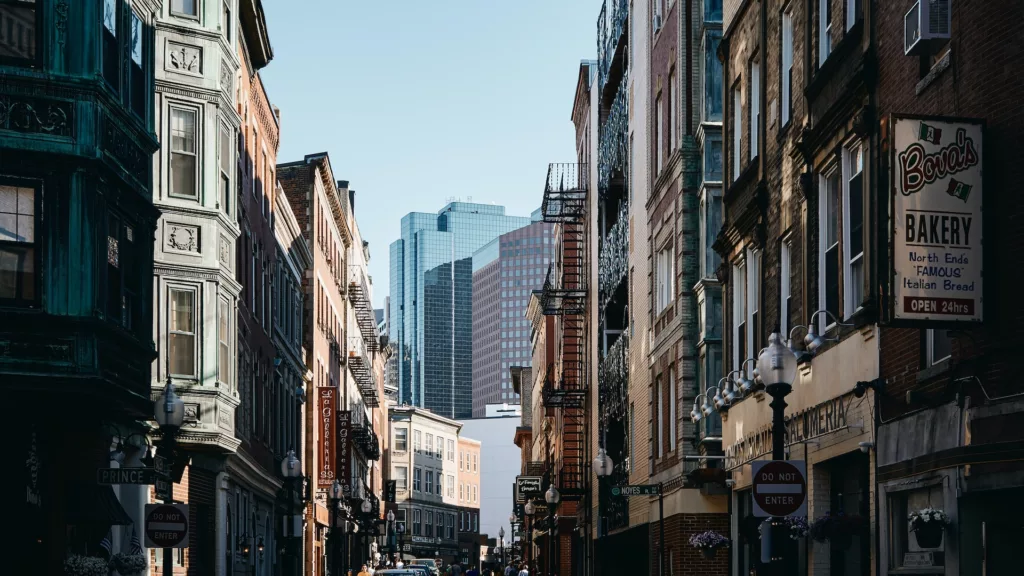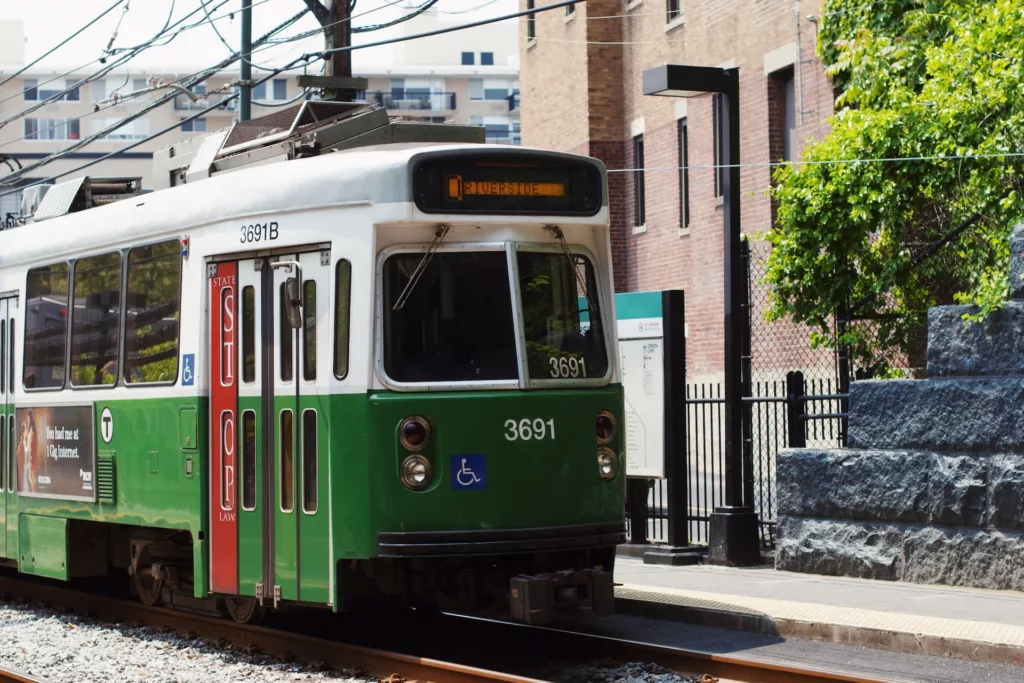
Boston is one of the most expensive cities to live in in the country. While living costs in Boston are a bit higher all around, it is less costly compared to other major cities like Los Angeles and Manhattan in New York City. Nevertheless, prices in Boston are significantly higher, and affordability should be your priority if you’re planning on moving here.
Living in Boston offers numerous career opportunities in different sectors, education in world-class universities and colleges, including Boston University, MIT, and Harvard, and access to quality amenities and infrastructure. Here are the pros and cons of living in Boston.
If you’re planning on moving to Boston, know whether you can afford to live here.
Here’s a detailed guide on the cost of living in Boston:
- Boston Housing
- Transportation
- Groceries
- Healthcare
- Entertainment and Leisure
- Taxes
- Cost of Living in Boston Vs. New York
- Can You Afford to Live in Boston?
Boston Housing
The average cost of renting an apartment in Boston is $3,894. The cost of rent depends on several factors, such as size, quality, and the neighborhood.
At June, the average cost of a studio apartment is $2,525, a 1-bedroom apartment is 2,975, while that of a 2-bedroom is $2,800 per month. However, you can find 1-bedroom apartments for as low as $1,950. However, it is lower than the median rent in New York City, which is $2,928 per month.
Despite the high housing cost, some affordable options are available in Boston. The city has several affordable housing programs, including the Boston Affordable Housing Trust Fund and the Inclusionary Development Policy, that help provide affordable housing for low-income residents. However, affordable housing options are limited, so it may take some time to find a suitable option.

Transportation
Public transportation in Boston is fast and reliable. Many residents rely on the MBTA (Massachusetts Bay Transportation Authority), popularly known as the T, to commute to the city, suburbs, and surrounding neighborhoods. The MBTA offers the subway, bus, commuter rail, ferry, and The Ride (paratransit service), to get around Boston.
Cost of Boston Public Transportation

Subway one-way fare is $2.40, and bus fare is $1.70 with CharlieCard, CharlieTicket, or cash. Commuter rail costs $2.40–$13.25 based on the distance, and the ferry will cost you $2.40–$9.75 based on the route taken.
Alternatively, you can purchase a subway and bus pass at $11.00 for a 1-day pass, $22.50 for a 7-day pass, and $90.00 for a monthly LinkPass. Plan your route and calculate your fare using the MBTA trip planner.
Walking and Biking
Boston is a highly walkable city—you’ll love walking along the charming cobblestone streets and historic sites. Biking around Boston is a fun and affordable way to explore the city. Get a bike when you need one on the Bluebikes bike-sharing system, with a single pass and monthly and annual membership plans.
Taxis and Ridesharing
Taxis are widely available and easy to flag outside popular attractions, hotels, and airports. Ridesharing is readily available with services like Uber and Lyft.
You don’t need a car in Boston as it’s more of a hassle than a help. Besides the awful traffic—especially during rush hour—maintenance costs, car insurance, and gas increase your transportation costs. Also, parking spaces are few and often a hassle. If it’s absolutely necessary, it’s easier to rent when you need it.
Groceries
Boston residents pay the 4th highest grocery cost in the country—the average resident pays $406.21 for groceries per month, which is higher than the national average of $355.50. It’s important to note that this is the cost for basic groceries with no additional expenses like restaurant bills.
Food prices, according to Numbeo, are as follows.
This is lower than prices in Hawaii ($556.76) and New York City ($482.87) and slightly higher than those in Washington DC ($405.08) and Seattle ($402.08).
Affordable food options are available, including farmers’ markets and discount grocery stores. The Boston Public Market is a year-round marketplace that offers fresh produce, prepared meals, dairy, eggs, seafood, baked goods, and specialty items. See other Boston farmers’ markets and mobile markets in various neighborhoods.
Discount grocery stores are even more affordable as they allow you massive savings on fresh foods. Salvage groceries and help prevent food waste at salvage grocery stores or find grocery bargains at dollar stores.
Healthcare
Boston is known for its excellent healthcare options and highly-skilled medical professionals. However, this quality comes at a cost, which can be quite high compared to the national and regional average. According to Forbes, Boston ranks among the top 10 most expensive cities in the US for healthcare.
Residents have various insurance options, including MassHealth, Medicare, and private insurance. However, private insurance can be quite expensive, with some plans costing over $500 per month.
In terms of cost, the average doctor’s visit in Boston is around $137.66, which is about 17% higher than the national average. Seeing an optometrist can also be costly, with an average cost of about $200. Dental care is also higher, costing around $150 for routine cleaning. Medication can also be quite expensive in Boston, with some prescriptions costing over $500.
Overall, while Boston offers high-quality healthcare options, the cost can be a significant factor for those looking to move to the city. Remember that insurance options and costs can vary greatly, so it’s important to research and find a plan that works for you.
Entertainment and Leisure

The cost of entertainment and leisure in Boston can vary widely depending on the activity. Cultural events, such as concerts and plays, can range in price from a few dollars for a student or senior ticket to several hundred dollars for premium seating at a major event. On average, you can expect to pay around $50-70 for a ticket to a theater show and $70-150 for a concert.
There are also many free or low-cost activities available in Boston, such as visiting one of the city’s many parks, the Boston Common, or checking out free museums and galleries, such as the Museum of Fine Arts and the Isabella Stewart Gardner Museum.
Regarding dining and nightlife, costs vary widely depending on the establishment. A meal at a casual restaurant can cost around $15-25, while dinner at a fine-dining restaurant can cost upwards of $50-100 or more. Drinks at a bar or nightclub can cost around $10-15 for a cocktail or beer.
Overall, the cost of living in Boston can be relatively high, but with careful planning and budgeting, it is possible to find affordable entertainment and leisure options.
Boston Taxes
Boston has a relatively high tax rate, with an income tax rate of 5.0%, which is higher than the national average of around 4%. Additionally, Massachusetts has a sales tax rate of 6.25%, which is also higher than the national average of about 5%.
When you combine the city and state taxes, the overall tax rate in Boston is 11.35%, which is higher than the regional average of 9.25% and higher than the national average of 9.00%.
High taxes can mean less disposable income for entertainment, dining, and other leisure activities. It also means that you’ll be paying more money on living expenses and housing, which is already relatively high in the city.
However, it’s worth noting that Boston is known for having good public services and infrastructure, which is partly due to its high taxes. The city has a well-funded public school system, reliable public transportation, and access to quality healthcare. Therefore, despite the higher taxes, many residents find that the benefits of living in the city outweigh the cost.
It’s essential to weigh these factors when considering a move to Boston, so you can decide whether the high taxes are worth the trade-off for the city’s amenities and services. It’s also important to speak with a tax advisor or professional to understand the full implications of taxes for your specific situation.
Cost of Living in Boston Vs. New York
New York is considered one of the most expensive cities in the United States. While Boston is also considered relatively expensive, living costs are generally lower than in New York.
Housing is one of the biggest differences between the two cities. The median home price in New York is around $1.3 million, while in Boston, it is around $680,000, which is relatively lower. Additionally, the average rent for a one-bedroom apartment in New York is around $3,500, while in Boston, it is about $2,800, which is also relatively lower.
Food and transportation are also generally more expensive in New York than in Boston. The average price for a meal at a casual restaurant in New York is around $15-25, while in Boston, it is about $10-20. Additionally, the average monthly transportation costs in New York are around $150-200, while in Boston, it’s around $90-120.
Overall, the cost of living in Boston is generally slightly lower than in New York. However, it’s still relatively high compared to other United States cities.

It is important to note that there are other factors to consider besides the cost of living, such as taxes, availability of jobs, culture, and weather, which may affect your decision.
Can You Afford to Live in Boston?
Boston is a relatively expensive city when it comes to the cost of living. Housing, transportation, and food are all generally more costly than in other parts of the country.
However, Boston also has a high median salary and many job opportunities and offers good public services and infrastructure. To afford a comfortable lifestyle in Boston, you would need a salary of around $60,000 to $80,000 or more, depending on your lifestyle choices.
Overall, it’s important to weigh the cost of living against the city’s amenities and opportunities when considering a move to Boston.